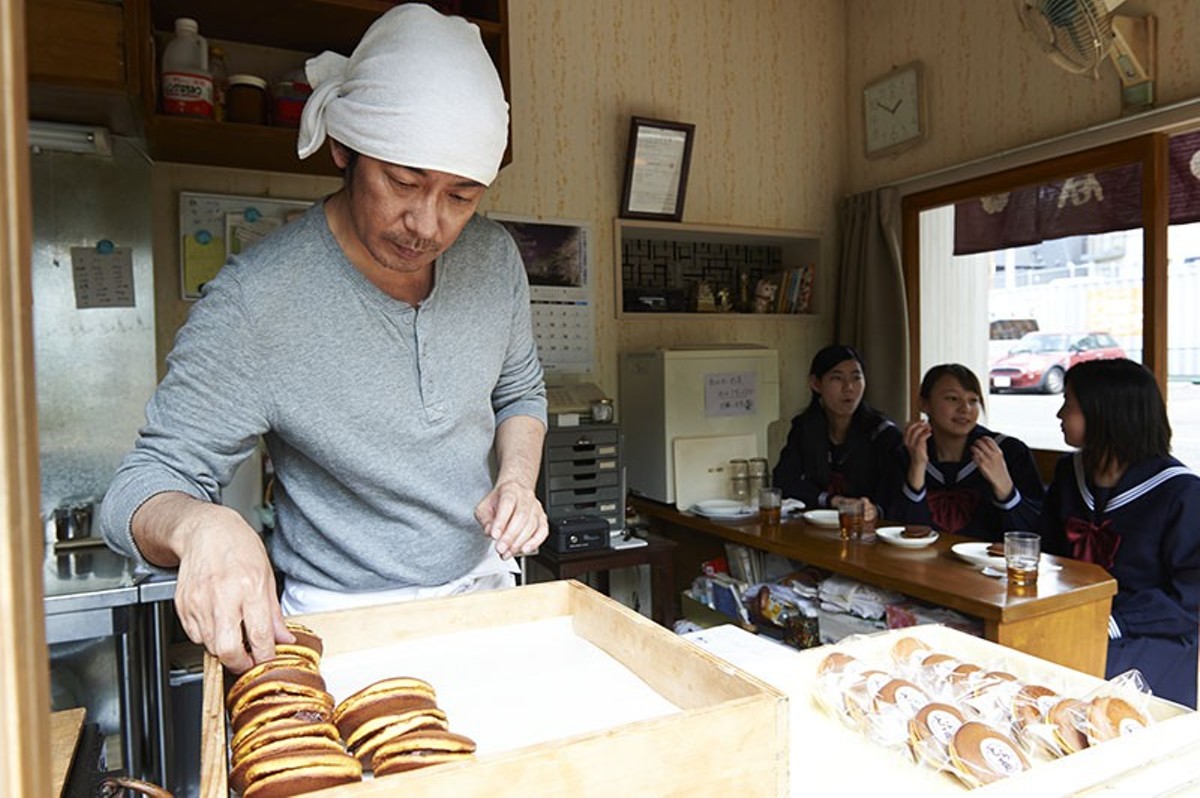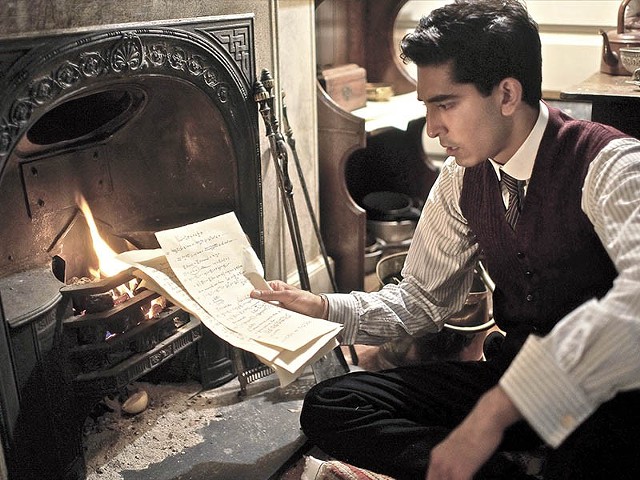We see so little of contemporary Japanese cinema — and most of what we see are either gangster films, horror movies or anime — that it may be tempting to approach Naomi Kawase's Sweet Bean as a novelty, admiring it with a kind of cinematic tourism. Oddly, Kawase's film resists such an approach, evoking a sense of Japanese culture that hovers dangerously close to nostalgia, yet never quite embraces it. It's an odd film that wants to be endearing but instead creates a sense of emotional distance.
Much of the film takes place in the suburban Tokyo shop where Sentarô (Masatoshi Nagase) sells dorayaki, a popular confection consisting of two pancakes filled with a sweet red bean paste called an. He maintains a temperament so perpetually gloomy that it's become a joke to his customers, most of whom are schoolgirls. (He also seems to have befriended one of them, Wakana, a lonely girl with family problems — though their relationship isn't entirely made clear.) As the film begins, Sentarô is visited by Tokue (Kirin Kiki), an elderly woman who asks him for a job. Rebuffed, she reappears a day later to tell him that his an needs work and leaves him with a sample of her own recipe. Won over by her cooking, Sentarô hires Tokue and soon has dorayaki customers lined up at his door — until rumors and sheer pettiness bring his success to a halt.
By almost any standard of judgment, Sweat Bean should be a mess. It's sentimental, and overloaded with banalities about the rich tradition of dorayaki preparation ("I always listen to the stories the beans tell," Tokue explains as she lovingly peeks into a boiling pot). The secondary characters are trite and stereotypical, while the subplots involving Wakana's home life and the reason for Sentarô's grumpiness are too thin to be taken seriously. Yet somehow, in its own modest way, the film works.
There's hardly a turn in the plot that avoids cliché, but Kawase manages to deflect the flaws in each of them with a minimalist twist, by simply ignoring them. Many of the most significant narrative points — Tokue's downfall, Wakana's difficulties with her mother — take place off screen, letting the viewer piece them together. Can a plot twist be considered banal if it's omitted altogether?
The film is at its best when it focuses on everyday events: the rhythms of the shop, the process of mixing the batter or boiling the beans. At times this leads to an excess of Tokue's rambling pseudo-mystic reveries over dorayaki tradition, but it also brings to life the growing friendship between the older woman and "Boss" as they bond over the stove top and ignore the rest of the world. Personalities triumph over plotting; the chemistry between Kiki, Nagase and, in the role of Wakana, Kyara Uchida (Kiki's granddaughter in real life) outshines the particulars of the story. (It's probably also helpful that the character of Tokue in Durian Sukegawa's novel was written with Kiki in mind.)
I've read that Kawase has often been criticized in her country as a director whose films are more suited to the international festival circuit than for her home audiences (Sweet Bean is her seventh film to be shown at Cannes). But Sweet Bean has been described as her first real Japanese film — and her first actually made in Tokyo. Kawase tries to capture the most ordinary aspects of the city, a calmer and more natural place than is usually seen on screen. Her camera lingers at intersections, gazes upward at cherry blossom trees and presents a strange and lonely city. There are few traces of the contemporary world, and even those — cellphones, power lines — are banished to the edges of the frame. Kawase creates a kind of timelessness, as if the city has somehow been frozen in the past, but as the film reveals more of Tokue's harsh life, the drab, simple streets take on an heroic quality as well. In this film about long lives and secret tragedies, we slowly realize that we're seeing an eternal city, the place the aging heroine has dreamed of for most of her life.






